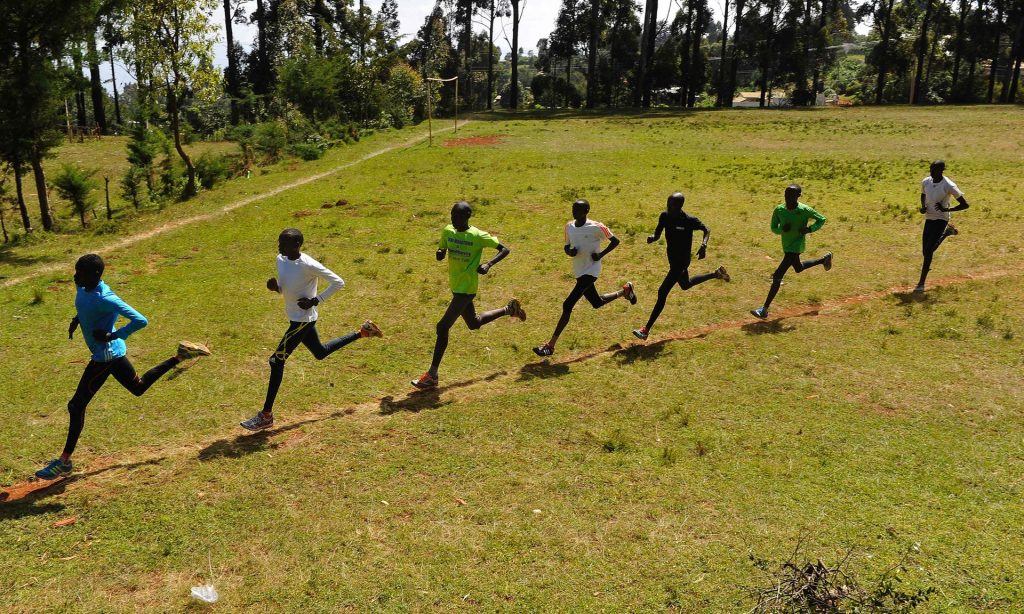
Photograph: Simon Maina/AFP/Getty Images
Kenya has passed new anti-doping legislation in a bid to comply with international standards amid fears its athletes could be banned from participating in the Olympic games in Rio.
The amended bill was signed by president Uhuru Kenyatta just two days after the International Olympic Committee (IOC) said competitors from Russia and Kenya would have to be screened individually if they wished to participate in the Games.
Thomas Bach, the IOC president, said on Tuesday that allegations of a systematic doping cover-up in Kenyan athletics had put “serious doubts on the presumption of innocence of athletes”.
In 2016 Kenya has failed twice to meet the World Anti-Doping Agency’s (Wada) requests for legislative reform, prompting concerns from local sporting bodies the country could be declared “non-compliant” and their athletes banned from international competition.
The IOC has already decided to uphold its blanket suspension of the Russian athletics team after the International Association of Athletics Federation (IAAF) found the country guilty of massive state-sponsored doping. Individual Russian athletes may compete in Rio as neutrals if they prove they are clean.
The Kenyan anti-doping law is therefore an urgent attempt by the government to restore confidence in its athletes and meet Wada standards. It outlines plans for a independent agency with broad investigative powers and new minimum jail terms for suspected dopers.
Athletes found guilty of using banned substances will now face a minimum fine of 100,000 Kenyan shillings (£672) and a possible jail term.
Medical personnel found to be supplying or colluding with athletes and coaches will be liable for a fine of at least 3,000,000 shillings (£20,189), and a possible three-year jail term.
The law will also see the establishment of a tribunal to arbitrate doping cases and the hiring of anti-doping compliance officers.
A Wada study from 2014 found that at least 36 athletes had tested positive for various banned substances, and that one in five sportspeople knew a colleague who used illegal drugs.
In November the International Association of Athletics Federation (IAAF) confirmed it was investigating an alleged doping and corruption cover-up by Athletics Kenya, with detectives questioning senior officials at the organisation.

